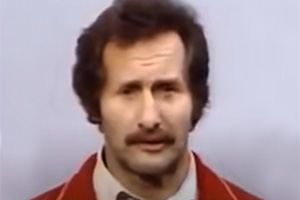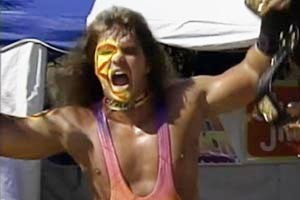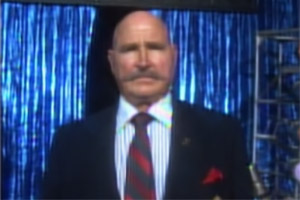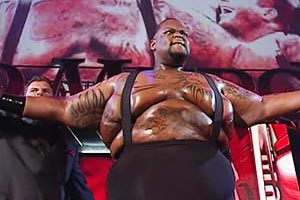Paul Boesch Death – Heart Attack
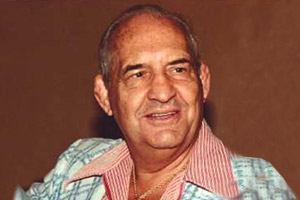
Paul Boesch, dead at 76 from a heart attack.
1912-1989 (Age 76)
Paul Boesch was the Renaissance Man of Professional Wrestling—professional wrestler, war hero, poet, wrestling announcer, and innovative promoter, Boesch left a lasting impression on “The Sport of Kings” earning numerous accolades for his time in and out of the squared circle.
Boesch’s accomplishments earned him a spot as a charter member of the Wrestling Observer Newsletter Hall of Fame, just one of many awards earned during his life.
A Hard-Knocks Life
Born on October 2, 1912 in Brooklyn, New York, Paul Boesch would endure a challenging childhood. Boesch’s father died when Paul was only five years old, forcing his mother to make ends meet as a servant for rich families. Boesch became a life guard at age 14 and not long after graduating high school (which may not have happened according to some sources), he became a professional wrestler.
As was the case with many professional wrestlers, Boesch traveled wherever work took him. This took him through the Pacific during Japan’s incursions against various nations in the years leading up to the United States’ entry into World War Two. Boesch got out and enlisted with the U.S. Army. There, he served in Europe, earning a whole host of medals with the Pecan Park Eagle noting he earned “the Purple Heart, Silver Star and Cluster, a Bronze Heart and Cluster, and the French Croix de Guerre with Star” as well as “a Combat Infantryman’s Badge, a Distinguished Unit Citation, and a Distinguished Citizen’s Award from the 121st Infantry Association.”
Boesch later wrote Road to Huertgen: Forest in Hell, an account of his participation in one of the most harrowing battles of World War Two.
A Post-War Wrestling Career Ends Early
Boesch returned to wrestling after being discharged from the Army, but his in-ring career ended after a devastating automobile accident that nearly took his life. Boesch would wrestle on special occasions, but a full-time grappling career was out of the question.
Thankfully, Boesch was able to find a job as a broadcaster for promoter Morris Sigel, a job that paved his way into eventually becoming a promoter.
Boesch served as Sigel’s announcer, starting with the radio and moving into television.
Boesch also worked as a booker and publicity man, learning how things worked behind-the-scenes in the often-cutthroat world of professional wrestling. However, like Boesch, Sigel was known for his integrity and Boesch would following in Sigel’s footsteps when he bought the promotion from Sigel’s widow in 1967.
A Prestige Promoter
As noted by Greg Oliver in a 2001 article at SLAM! Sports on Paul Boesch’s legacy, the Houston promoter worked with a number of territories including Southwest Sports (which later became World Class Championship Wrestling), Southwest Championship Wrestling, and Mid-South Wrestling. This enabled him to bring in some of the biggest names in professional wrestling such as hosting some of the territory era’s most memorable cards. One such card would see Jack Brisco capture the NWA World Heavyweight Championship from Harley Race on July 20, 1973 in Houston.
A Rarity Among Promoters
In an industry based on deception, the reputation of wrestling promoters often lies with other bastions of integrity such as used car dealers and attorneys (with all due respect to both).
Nonetheless, Paul Boesch was considered one of the few honest promoters and someone who could be counted on to give his wrestlers a fair shake. Many are the accounts of Boesch’s integrity and reputation as a good promoter, including this recollection from territory star Billy “Red” Lyons who said, “I thought he was a good promoter, very good. And he was honest, an honest promoter. I really liked him … Whatever he promised you, you got.”
In addition to his reputation for honesty, Boesch was known for his civic-mindedness including generous charitable contributions.
The End of an Era
By 1987, territory wrestling was on life support. Boesch continued promoting, but as health problems mounted, he decided to work with the WWF. The business arrangement only lasted four months and Boesch retired, with the WWF hosting a sell-out show in Houston on August 28, 1987 commemorating his many achievements.
Paul Boesch Death
Paul Boesch died on March 7, 1989 after suffering a heart attack. He was 76 years old.
Boesch is buried at the New Zion Baptist Church Cemetery in Monticello, Mississippi.
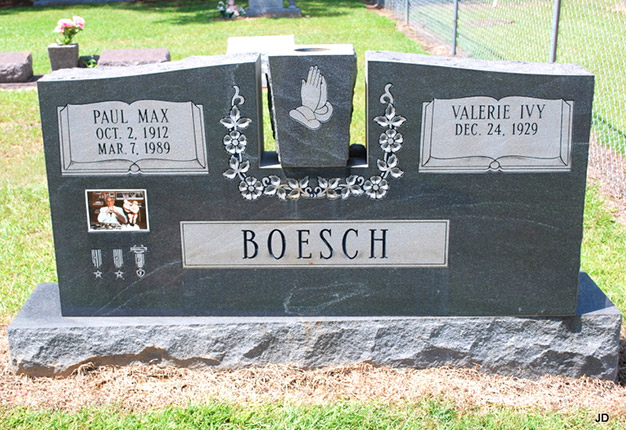
The grave of Paul Boesch in Monticello, Mississippi. photo: James Drumright / findagrave.com
As previously reported, many other notable wrestling stars have died from heart attacks, heart failure, and heart complications over the years. 1989 also saw the loss of Haystacks Calhoun.
What are your favorite memories of Paul Boesch? Let us know in the comments below.

